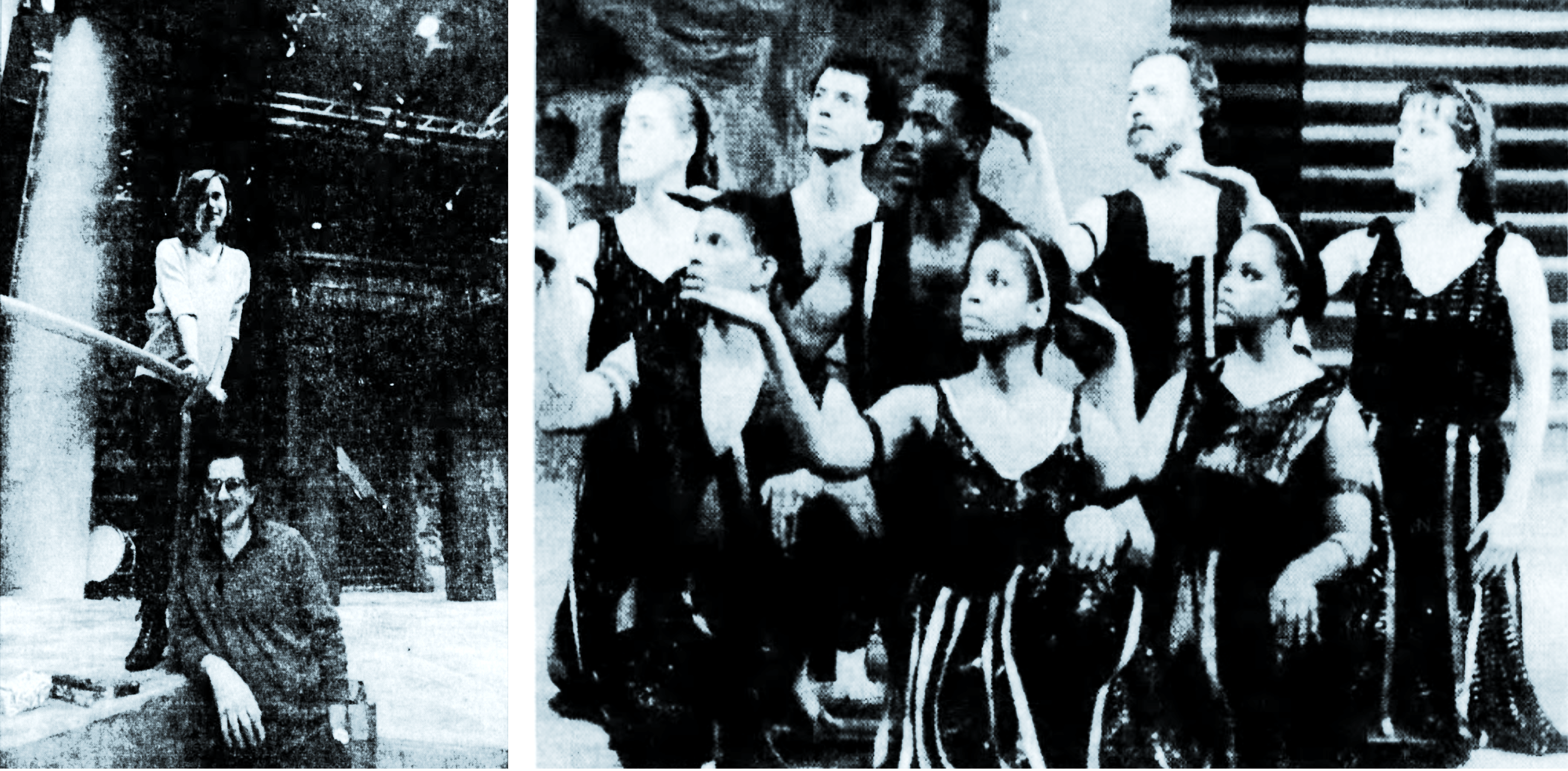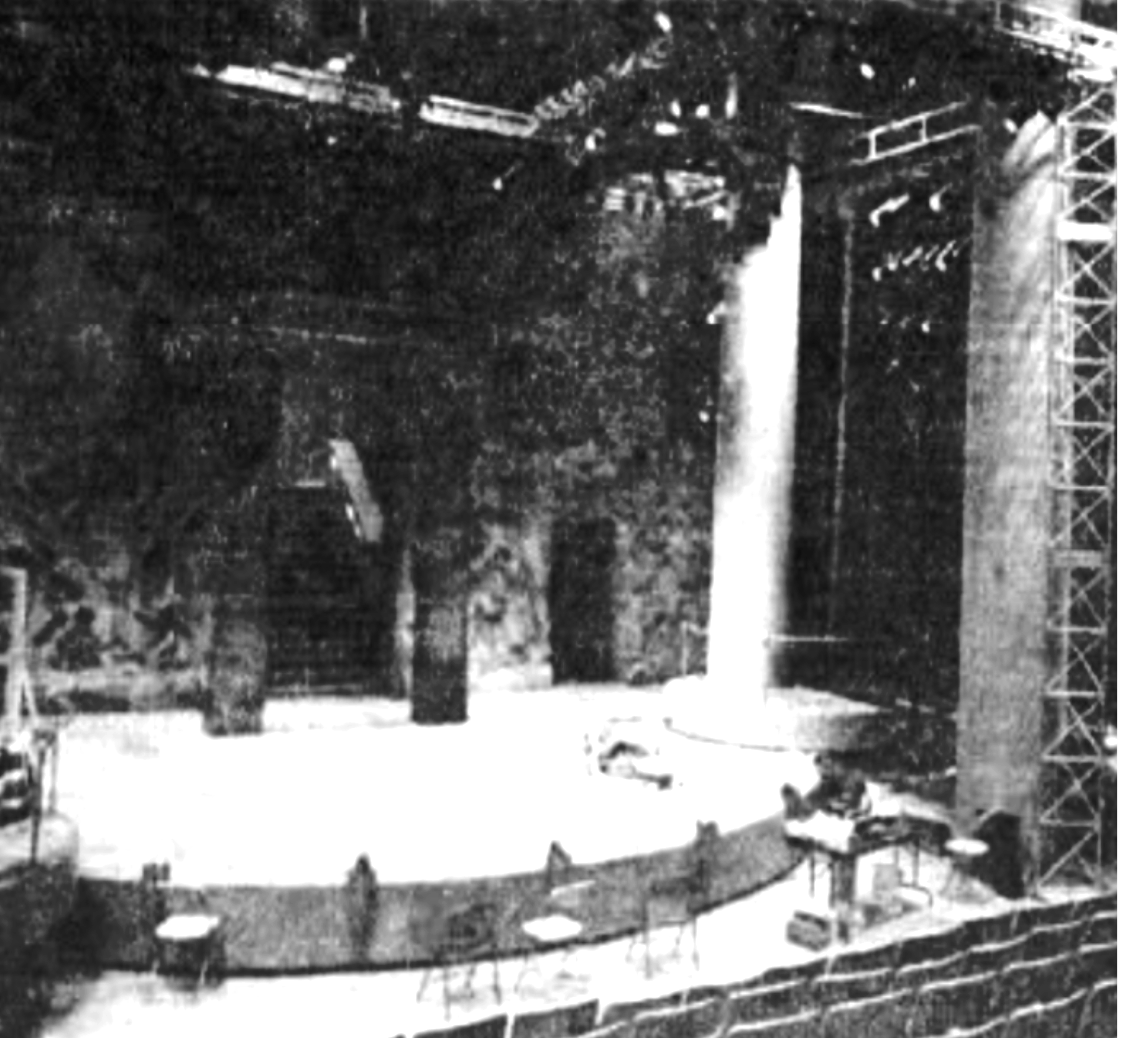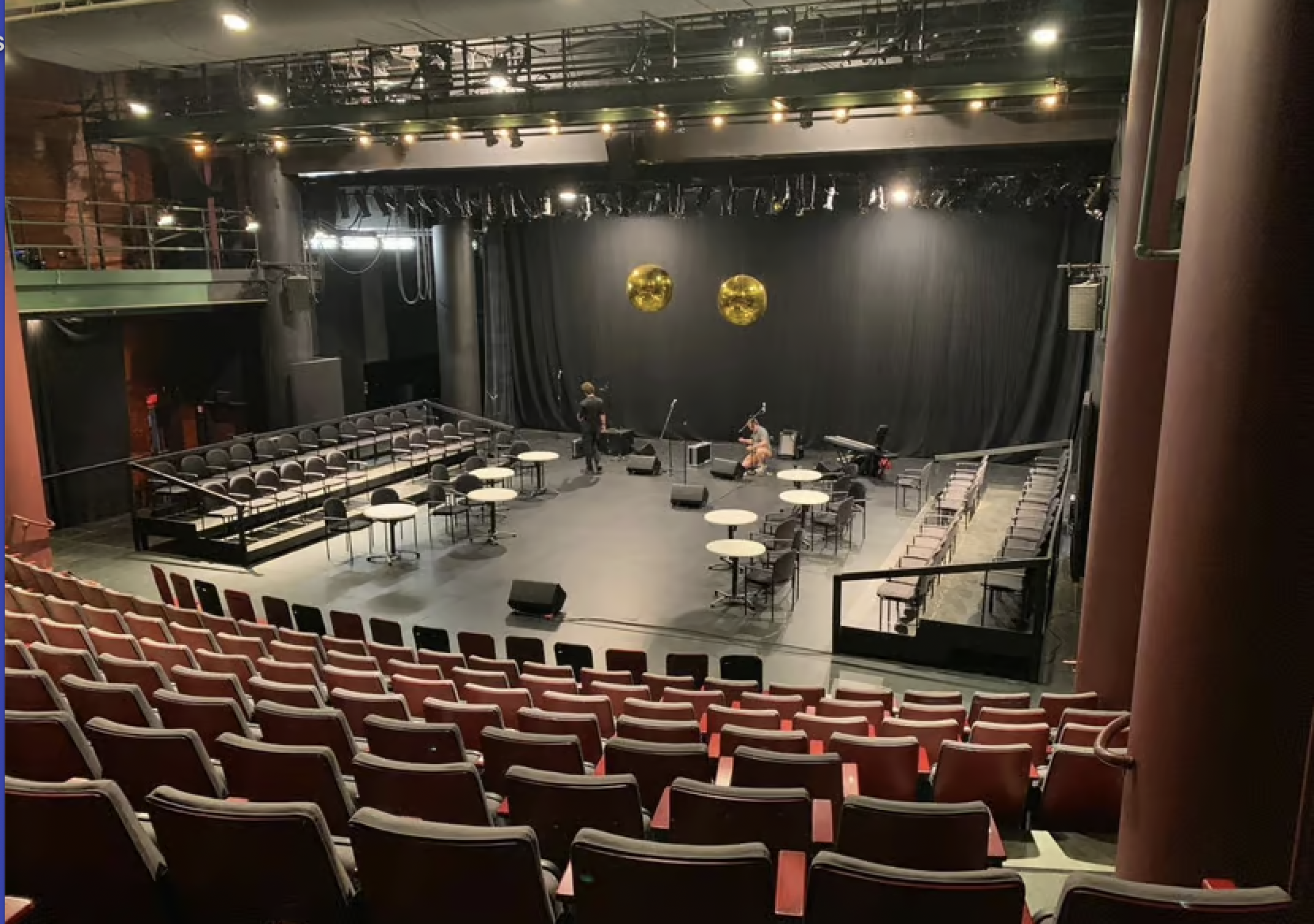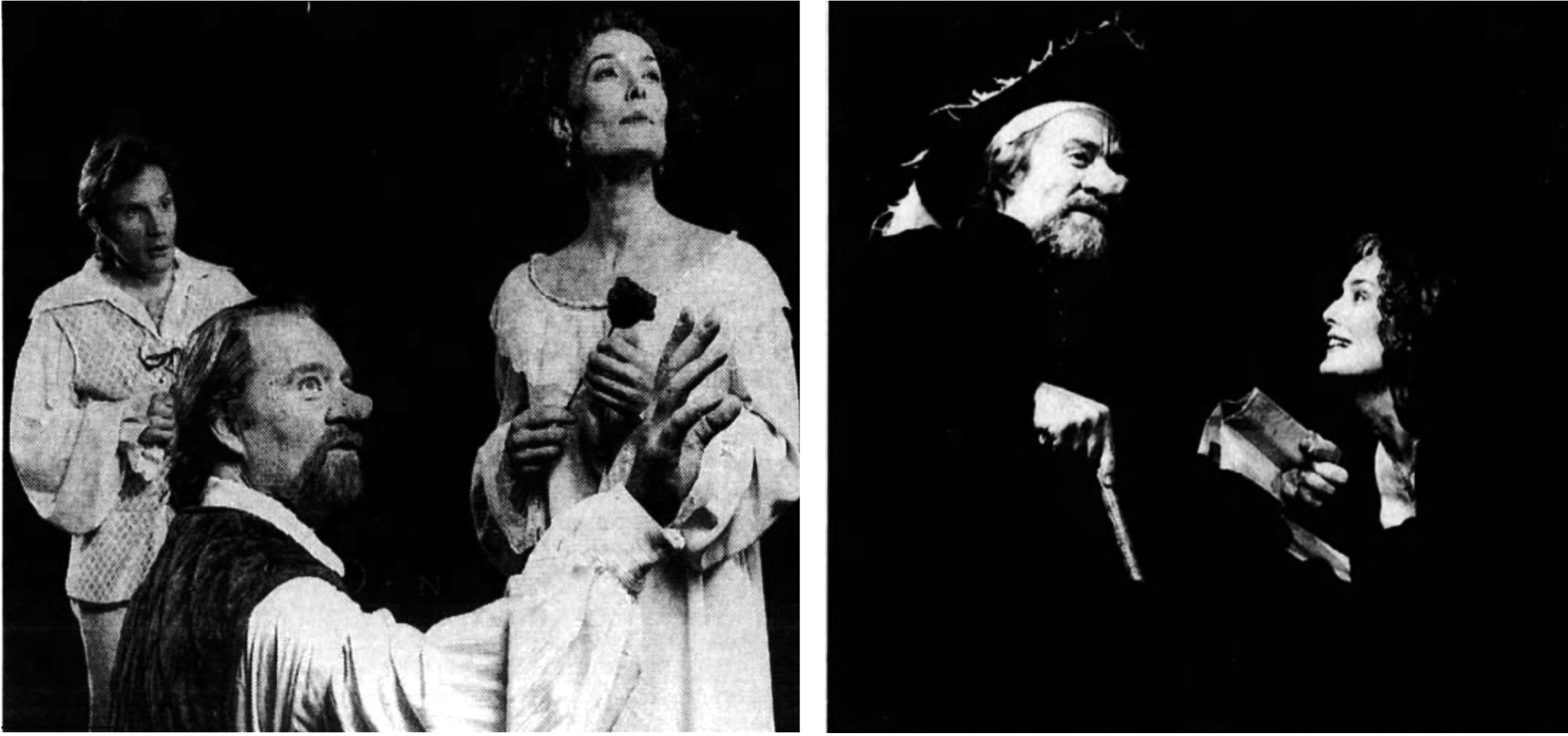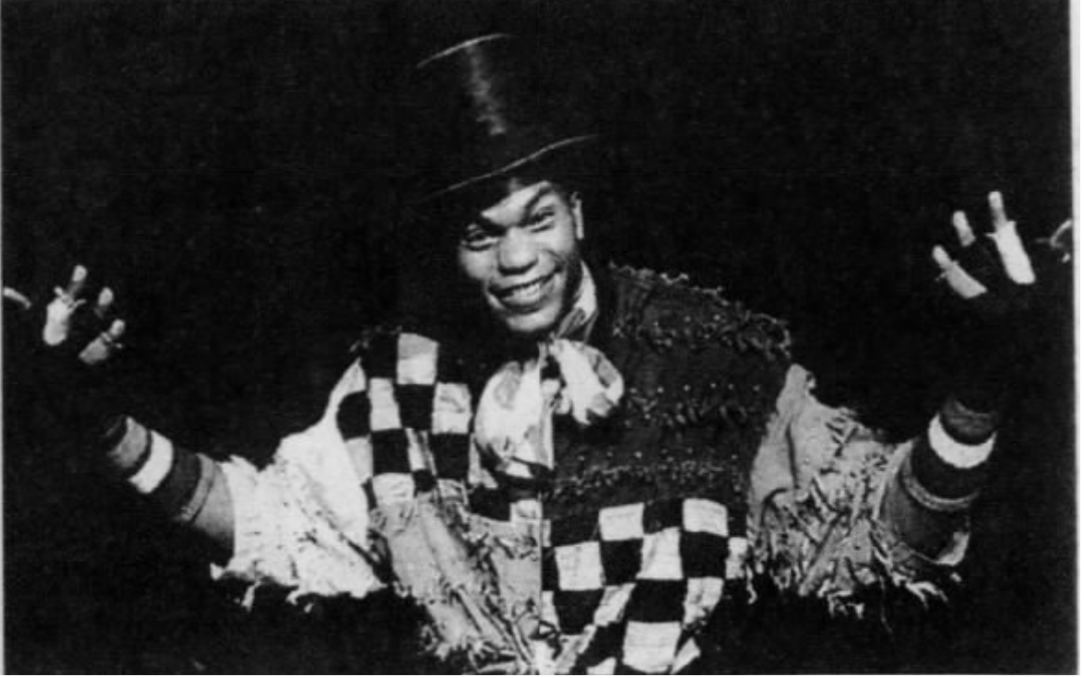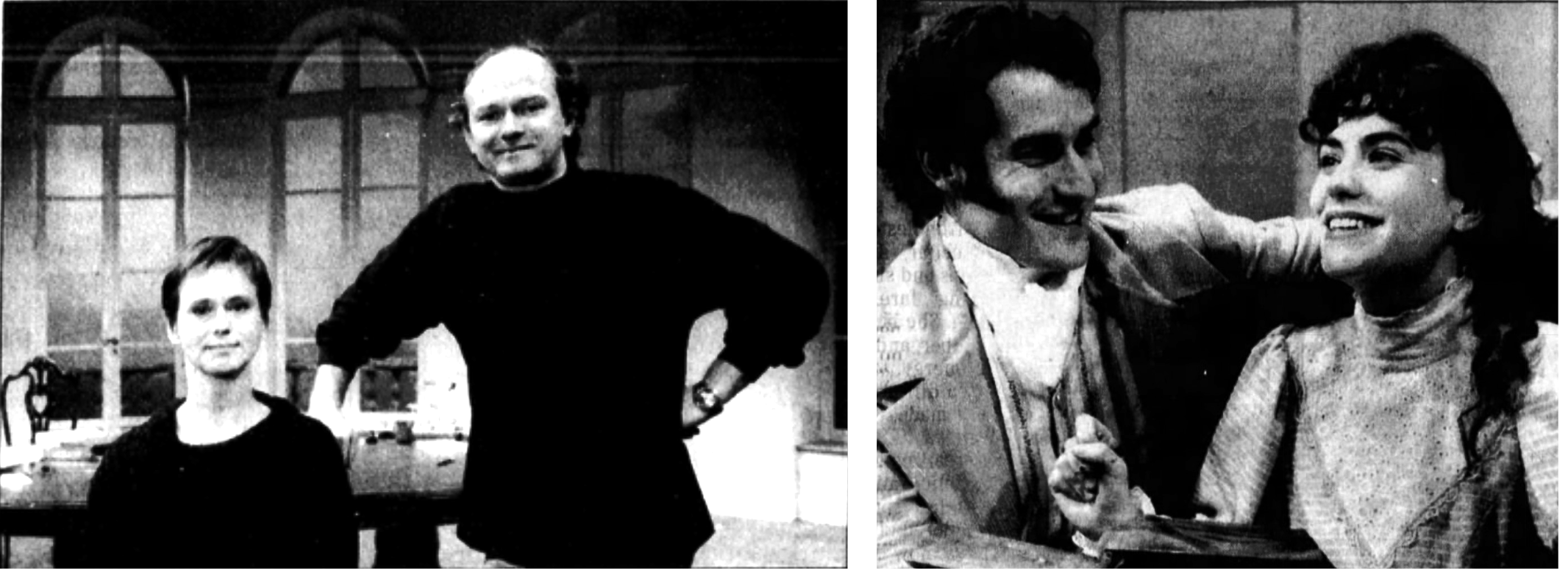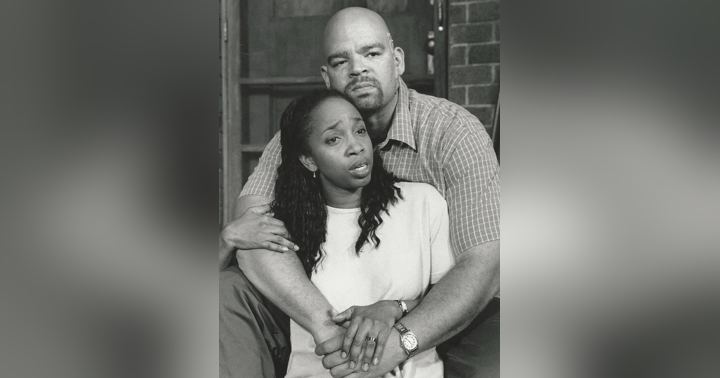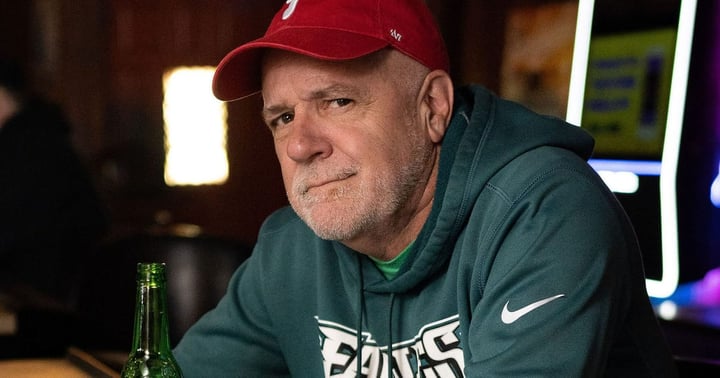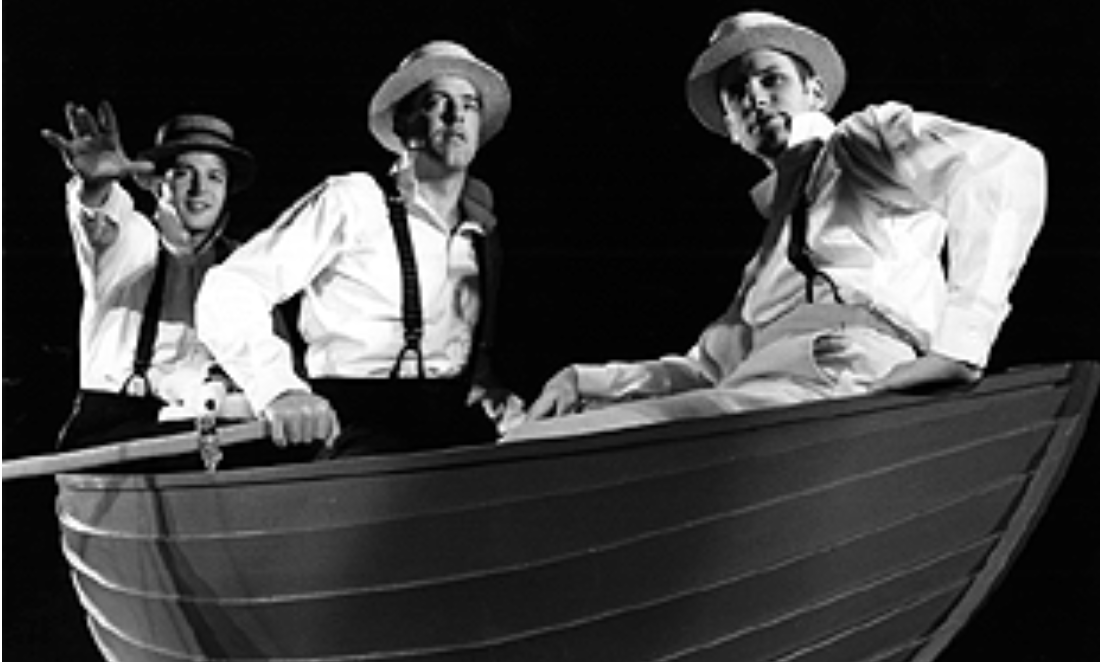
Header Image: George Tynan Crowley (left), Ian Merrill Peaks (center) and Mark Alhadeff (right) sail out into the air, during Blanka Zizka's February 2000 production of Tom Stoppard's The Invention of Love.
(By the way, in our NEXT episode we will learn more about the most famous on stage boat in Philadelphia theater history. Stage manager Pat Adams will talk about what it was like to call that particular cue.)
Meanwhile, back in April of 1993, "WILMA'S NEW 'OEDIPUS DEPOSITED IN OLD BANK" was the headline on a Philadelphia Sunday Inquirer article. Douglas J. Keating wrote the feature piece, which is excerpted below.
__________________
After 12 years of putting on plays in the cramped Wilma Theatre, Blanka Zizka wanted a change.
"I thought I'd done what I could in the Wilma space, and I was ready for exploring something larger," said Zizka, the theater's co-producing artistic director.
As Zizka spoke, she was sitting in a former bank that had been transformed into a temporary theater that makes the Wilma seem like a shoe box.
In this space at 15th and Chestnut Streets – with 30-foot ceilings, massive Grecian columns and a temporary stage area nearly as big as the Wilma's entire Sansom Street theater – Zizka's production of "Oedipus the King" was to open . . .
The production of the tragedy by Sophocles marks a convergence of personal and institutional ambitions. The Wilma, said Zizka, wanted to draw attention to itself and its work by creating a theatrical event of high visibility.
At the same time, Zizka wanted to test herself as a director. Not only did she want to move beyond the confines of the Wilma's playing space, she also wanted to create a production that was an "emotional elevation for me," not a show "based on a superficial notion of something that should be done in a theater."
In short, both Zizka and the Wilma wanted to make a statement.
. . She decided that [Oedipus] was the play she wanted to produce, then recalled that Philadelphia poet Stephen Berg several years earlier had sent her a version of "Oedipus" he co-authored. She read it and was impressed with the lyricism of Berg's language. "I want to somehow translate physicality in space the poetry that Stephen achieved . . "
. . . Searching for a space to turn into a theater large enough to accommodate her conception, Zizka found herself looking primarily at vacant banks, and the former First Philadelphia Bank branch fit her needs perfectly. Built in 1927, its grandly conceived beaux-arts design gives it the feeling of an ancient Greek building.
. . The Wilma installed an elevated audience area with seating for about 275. That is nearly three times the capacity of the present Wilma Theater, but only a score or so fewer seats than are planned for the South Broad Street facility for which the Wilma plans to break ground later this summer.
Although the bank space is larger, Zizka said it was enough like the new theater design for her to view "Oedipus" as an exploration of what will be possible in the future.
_____________________
(The play was produced in March and April of 1993, and featured Olek Krupa as Oedipus and Ching Valdes-Aran as Jocasta.)
Above left: A photo from the Inquirer - Blanka Zizka with poet Stephen Berg, who along with Diskin Clay, co-authored the translation of the Oedipus the King. Above right: The chorus of the play, which included Beverly Barksdale, David Barrow, Michael James Laird, Beth Mann, Sheila Murphy, Thomas Corey Robinson, and Ira Rosenberg.
Below: A rather grainy copy of a photo (clipped from an online newspaper file), showing the set for the play in the former First Philadelphia Bank lobby in the 1927 Packard Building at 15th and Chestnut Streets, followed by a much clearer recent photograph of the audience and stage of the Wilma Theater on South Broad Street. To my eye, at least, one can see the clear influence of the 1993 production on what the Zizkas and architect Hugh Hardy came up with the design of the 1996 theater interior:
Above: photos from the production of Rostand's Cyrano de Bergerac, directed by Jiri Zizka in March of 1994. A co-production with the Bernard Havard, it was staged at the Walnut Street Theatre. Alan Scarfe played Cyrano, Peter Bradbury was Christian, and Philadelphia actress Susan Wilder was Roxanne.
Below: the actor Forrest McClendon as the Street Singer in the December 1997 production of Brecht/Weill's The Threepenny Opera, in a new translation by Michael Feingold, directed by Blanka Zizka.
Below left: Blanka and Jiri Zizka on the set of Tom Stoppard's Arcadia, which was the first play ever staged in the newly-built Wilma Theater in late December 1996.
Below right: A production still of Arcadia by photographer George Golem. Ian Kahn played Septimus Hodge, and Maggie Siff played Thomasina.

